Have you ever wanted to cycle from home to your local IKEA? It happened to me the other day when my wife and I decided to cycle from downtown Ottawa to our local IKEA store in a suburb west of the city to purchase several small items. It was 19 kilometers one way and actually a fun ride because we had the privilege to cycle along the Rideau Canal, through the urban Experimental Farm, and into the woods while passing many smiling people. More importantly, the ride put us on dedicated cycling facilities which were separate from traffic for a significant part of the journey. Feeling safe was essential for us to consider cycling to the Scandinavian design wonderland, which is also Dutch related. In case you didn’t know, IKEA’s headquarters are located in Delft, the Netherlands.
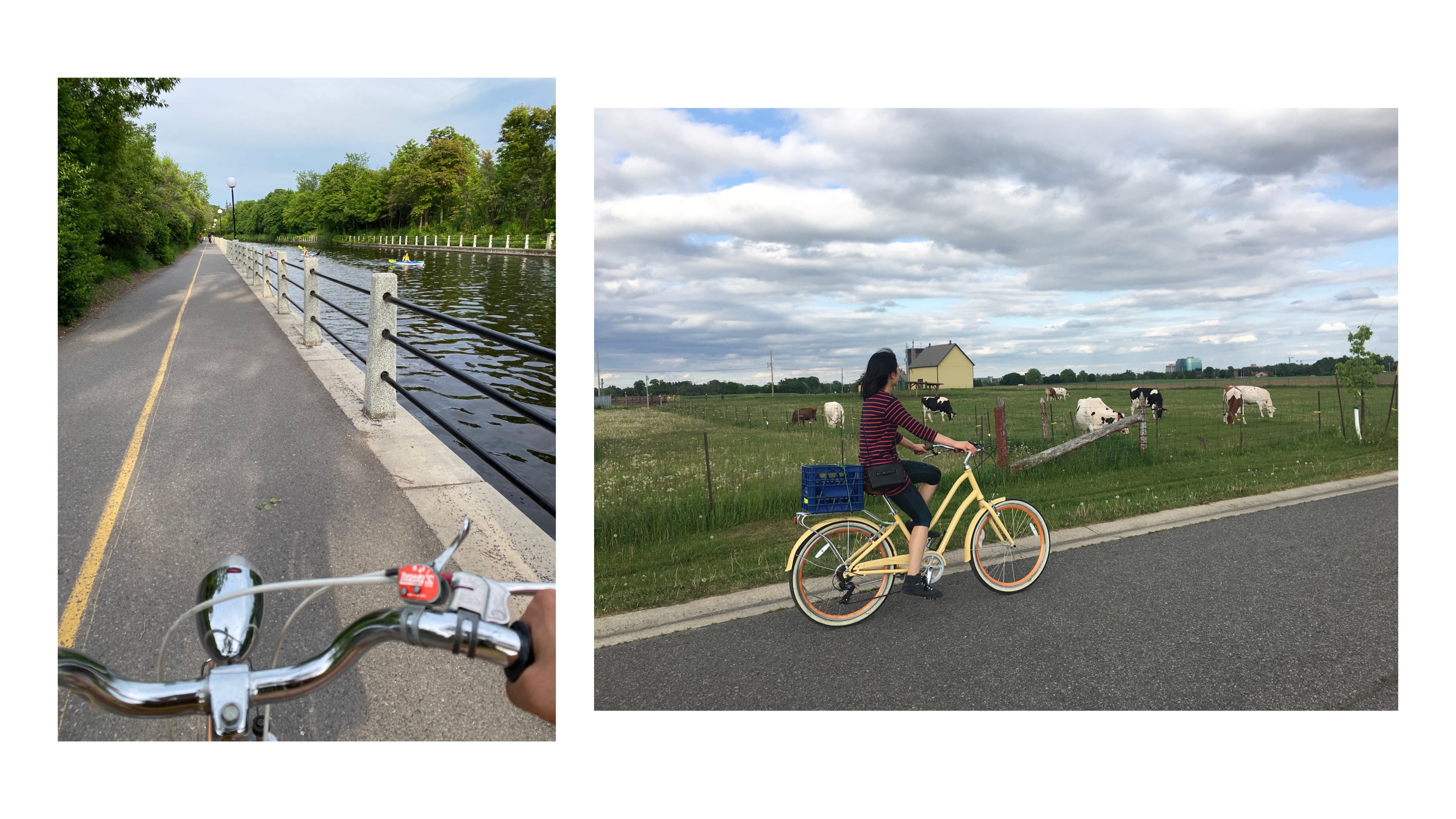
Many people have talked about how easy it is to cycle to the IKEA stores in the Netherlands, as shown on the YouTube channel Not Just Bikes (https://youtu.be/CgvYgxo6UY8). I have also personally witnessed people in the city of Groningen riding a cargo bike (rented out from IKEA) to bring home their new mattress. Knowing my local IKEA cycle trip is enjoyable and feasible, I wanted to turn my interest into understanding how all of the 15 Canadian IKEA stores perform in terms of cycleability.
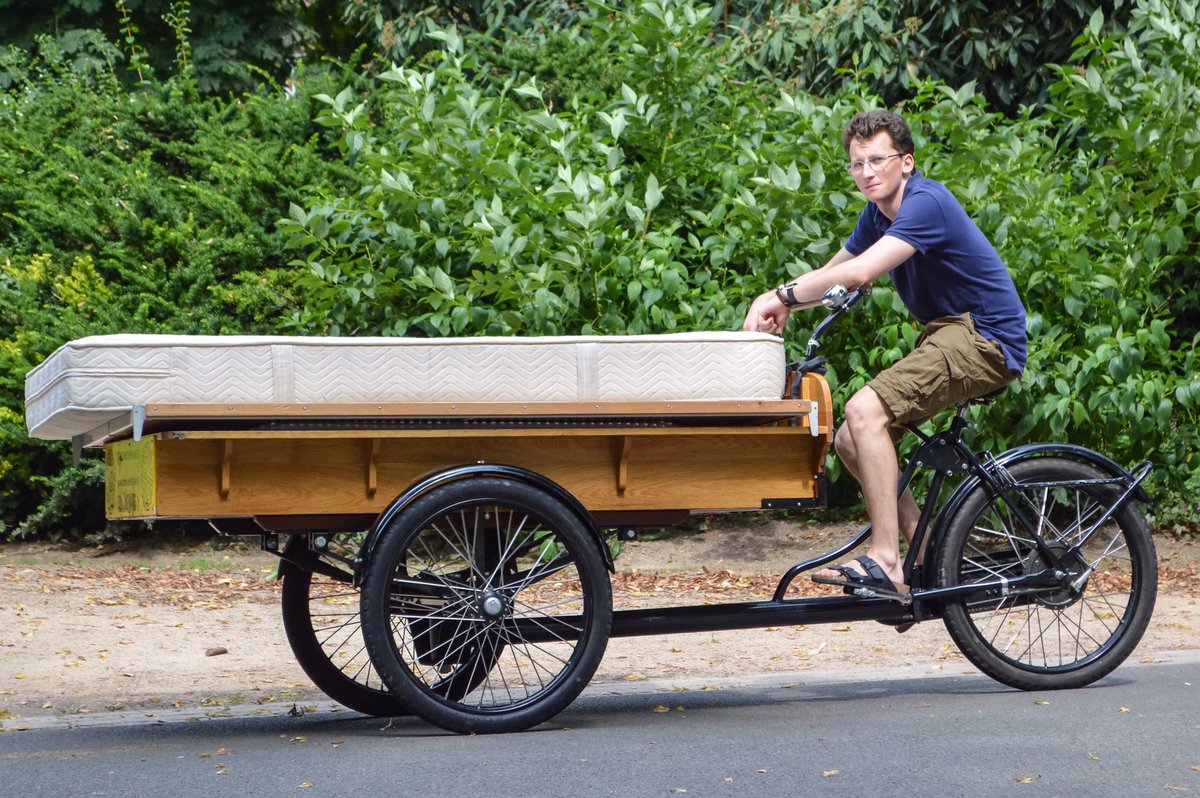 IKEA’s Cargo Bike for Rent in Groningen (credit: Melissa & Chris Bruntlett)
IKEA’s Cargo Bike for Rent in Groningen (credit: Melissa & Chris Bruntlett)
To even the field in each city, the cycle trip in my assessment was measured from City Hall in the metropolitan centre to the local IKEA store(s).
With data accessible through Google Maps and Streetview, I considered the following evaluation criteria to assess the five design principles for successful bike route and infrastructure, from the Dutch CROW Design Manual for Bicycle Traffic.
- Safety – percentage of the trip that has all ages and abilities facilities
- Directness – the competitiveness between the distance by bike versus the distance by car
- Cohesion – the uniformity and consistency of the facilities for users to navigate
- Comfort – general elevation changes and the presence of steep climbs
- Attractiveness – scenic routes and lack of noise and air pollution
Google Maps does not always present the most suitable route and, sometimes, much safer alternatives may be available (perhaps a topic for another blog post). Therefore, manual calibration was taken to fine tune the bike routes to maximize safety without discrediting other key principles. Nonetheless, the results coming out of this assessment are fascinating!
Results
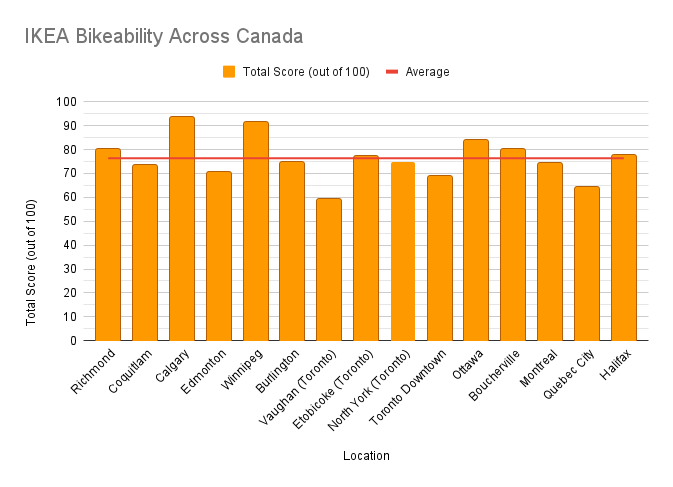
According to the breakdown, the most cycleable IKEA store in Canada is in Calgary (93.8/100), followed by Winnipeg (91.5/100) and Ottawa (84.0/100).
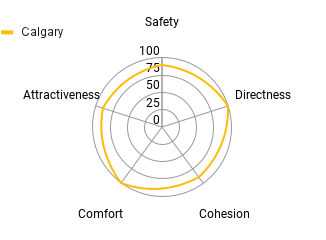
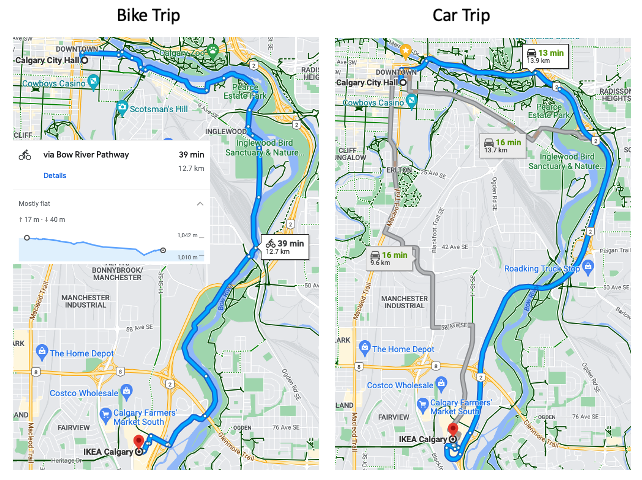
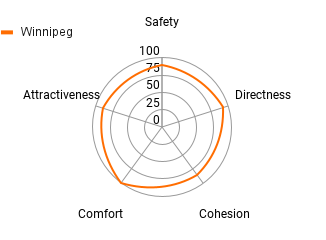
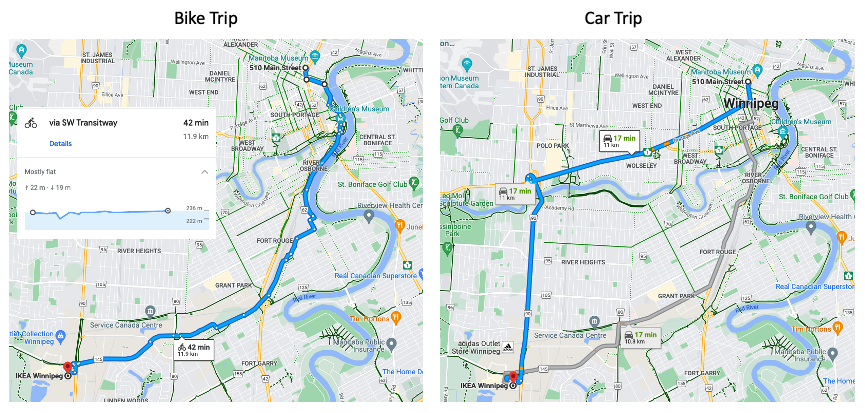
Some important takeaways
- Cities that are generally perceived as cycleable may not score well in this assessment if their cycling infrastructure is concentrated around the urban core but safe connections between downtown and the suburbs are lacking.
- It is often a balancing act to achieve safety and directness at the same time. While cyclists tend to look for the safest route to their destination, if a significant detour is required, many would not find cycling an attractive option as utility cyclists are more sensitive to directness than car users. This is important for planning intermediate to long distance cycling routes.
- The new addition of the downtown Toronto IKEA store could have been the most cycleable because it is less than 1 kilometre away from City Hall. However, the fact that a cyclist must ride with fast moving traffic for more than half of their journey lowered its score.
The cycleability for each of the 15 IKEA stores is illustrated below:





Reach out and let me know your thoughts on this assessment and whether or not you agree with the rankings, or discuss how to make your long-distance connections safer and more comfortable for cycling.
